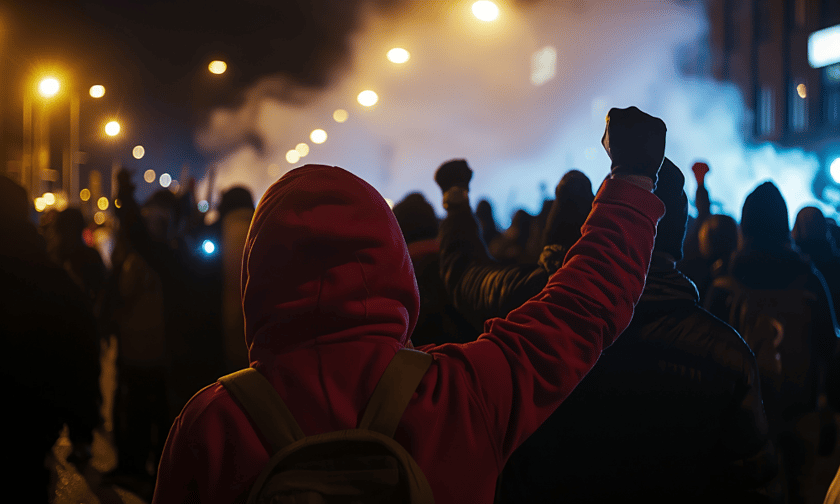

More than one in four UK businesses experienced disruption due to civil unrest in 2024, with nearly two-thirds expressing concern over continued incidents in 2025, according to research by insurance brokerage Gallagher.
The research, conducted in January 2025, surveyed over 500 UK business decision-makers from firms of all sizes. It assessed the impact of protests, vandalism, looting, and riots during 2024. Among affected businesses, 47% reported temporary closures, 44% experienced property damage, and 40% had stock or equipment damaged or stolen.
Protests and riots were widespread in the UK throughout 2024, with most occurring in England. Data from ACLED, analysed by Gallagher’s crisis management team, recorded nearly 1,000 protests, averaging close to 20 per week. Demonstrations were driven by issues such as climate change, politics, and immigration.
A series of riots followed a multiple stabbing incident in Southport, leading to demonstrations in 27 towns and cities between July 30 and August 7. Insured losses from these events are estimated at £250 million, with additional claims made for public compensation. Businesses also faced uninsured losses and loss of trade, while policing costs were covered by taxpayers. Thousands of people were arrested, with 100s imprisoned for their involvement.
In response, many businesses have taken precautionary measures. Thirty-five per cent (35%) have increased security, 28% have evaluated their risk exposure, and 25% have reviewed their insurance coverage for potential damage or disruption.
Many business leaders identified social media as a factor in escalating unrest, with 44% citing the spread of both accurate and false information as a contributing element. Economic conditions were also noted, with 49% attributing the unrest to financial pressures.
Social issues were also considered significant. Thirty-nine per cent (39%) of respondents linked the unrest to wider societal challenges, while 36% believed the UK was more divided than five years ago. Twenty-two per cent (22%) pointed to wealth disparities between generations as an aggravating factor.
The research also examined the impact of anti-social behaviour, which was reported as a greater concern for businesses than terrorism (32% vs 30%). Among those affected, 41% experienced theft, 38% reported threatening behaviour, and 36% cited vandalism as a problem. Retail theft increased significantly, with shoplifting rising by a third in the 12 months to June 2024, according to the Office for National Statistics.
“It is clear that all kinds of civil unrest in the UK is a problem and is weighing heavily on the minds of business leaders,” said Jonathan Rae, director of crisis management at Gallagher. “With many of the underlying conditions cited by business leaders still present in the UK, from inflationary pressures to societal division, it is no surprise UK businesses are concerned about another year of anti-social behaviour, and many are making plans to protect themselves against its impact.”
Rae added that UK business leaders should collaborate with an experienced crisis resilient risk adviser and insure damage to properties by having the right business interruption cover whenever they are unable to operate.
“Businesses of all types are exposed to civil unrest, and having the right insurance is key to mitigating the impact and any financial losses,” he said.
